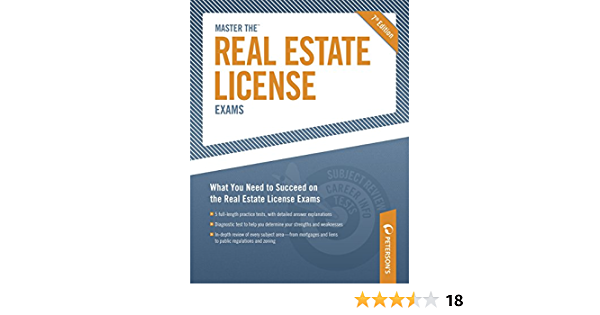
Stocks and real property are both great investment options, but each has its unique advantages and disadvantages. Here are some of the key differences between them: Liquidity. Risks. Location. And Profits. Real estate investing may be a better option if you're looking for passive income streams over the long-term. In addition to the potential for substantial appreciation, real estate also offers a passive income stream. Stocks, however, can be subject to inflation, economic and market risks. You don't need a large cash injection to buy stocks, but you can easily sell them.
Profits
Real estate investment has many benefits. For starters, real estate can create cash flow. Cash flow is what is left after expenses have been paid. Renting income can help offset expenses and keep money in your pockets. Your cash flow will increase the longer you keep a property. There are a number of tax deductions and tax breaks available for real estate. These tax breaks allow you to deduct reasonable expenses related both to ownership and operation.
Real estate investing offers investors the flexibility they need. You can slowly build a portfolio, and then supplement your income with rental income. Fix-and-flip income can be used as your primary source of income. Real estate also gives you freedom and flexibility to manage your property around your schedule. You're your own boss. You are in control of your work hours and you have no salary limitations.

Risks
It is important to be able to distinguish between the risks associated with real estate investing and stocks. Stocks are more volatile than real estate. Because you have collateral to your initial investment, the risk of capital losses is lower with real estate. Stocks are less liquid and can be withdrawn at any moment. Stocks can also produce income via dividends. Stock prices fluctuation can lead to emotional decisions. Investors need to be aware.
Additionally, there is a higher chance that you won't see an improvement in your returns. Stocks return an average 10% per year while real estate returns between three and four percent. You will still see a 20% annual return if you have at least 20% equity in the property. This is far more than what you would get from stocks. It is difficult to find properties with high values that you can sell for less than what they were worth. A tax penalty could be imposed if your property is sold in a shorter time period than normal. This is because the return on real estate markets is usually higher.
Liquidity
Liquidity refers to the ease with which an investor can convert their investment into cash. Stocks are more liquid that real estate investments as they can be traded during normal market hours. Although it can take several days to sell a stock position, investors can still get their money whenever they wish. Real estate investments, however, are not liquid and may take years to appreciate.
Another advantage to real estate investing is the fact that income comes from property investments and not capital gains. This makes it easier to do so. Additionally, the income component automatically increases with inflation. This allows investors to spend their real-estate profits faster. Another benefit of investing in real estate is that it is less volatile. Withdrawals from this type of investment are more secure, and less likely to be affected short-term volatility. Regardless of your personal preferences, you can easily find a strategy that suits you.

Locate
Direct investing in real property is not for everyone. However, if you want to build a balanced portfolio, you should consider real estate along with stocks. The stock market can be manipulated and accessed easily. Furthermore, investing in real-estate is safer than investing in stock index fund funds. Here are some tips for investors who are considering real estate investments.
FAQ
Can I buy my house without a down payment
Yes! There are programs available that allow people who don't have large amounts of cash to purchase a home. These programs include FHA loans, VA loans. USDA loans and conventional mortgages. You can find more information on our website.
How much will it cost to replace windows
Replacing windows costs between $1,500-$3,000 per window. The cost to replace all your windows depends on their size, style and brand.
What are the disadvantages of a fixed-rate mortgage?
Fixed-rate loans have higher initial fees than adjustable-rate ones. You may also lose a lot if your house is sold before the term ends.
What should I look for in a mortgage broker?
Mortgage brokers help people who may not be eligible for traditional mortgages. They shop around for the best deal and compare rates from various lenders. There are some brokers that charge a fee to provide this service. Some brokers offer services for free.
Statistics
- This seems to be a more popular trend as the U.S. Census Bureau reports the homeownership rate was around 65% last year. (fortunebuilders.com)
- Some experts hypothesize that rates will hit five percent by the second half of 2018, but there has been no official confirmation one way or the other. (fortunebuilders.com)
- The FHA sets its desirable debt-to-income ratio at 43%. (fortunebuilders.com)
- It's possible to get approved for an FHA loan with a credit score as low as 580 and a down payment of 3.5% or a credit score as low as 500 and a 10% down payment.5 Specialty mortgage loans are loans that don't fit into the conventional or FHA loan categories. (investopedia.com)
- This means that all of your housing-related expenses each month do not exceed 43% of your monthly income. (fortunebuilders.com)
External Links
How To
How to become a real estate broker
The first step in becoming a real estate agent is to attend an introductory course where you learn everything there is to know about the industry.
Next, pass a qualifying test that will assess your knowledge of the subject. This means that you will need to study at least 2 hours per week for 3 months.
You are now ready to take your final exam. For you to be eligible as a real-estate agent, you need to score at least 80 percent.
You are now eligible to work as a real-estate agent if you have passed all of these exams!